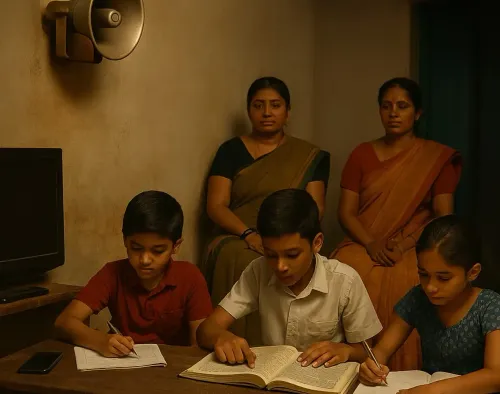Have the Three Arms of the Constitution Met B.R. Ambedkar's Expectations?

Synopsis
Key Takeaways
- The Constitution has successfully fulfilled its responsibilities over 75 years.
- It promotes social, economic justice, and equality.
- CJI Gavai emphasizes the importance of balance between Directive Principles and Fundamental Rights.
- The Constitution is seen as a tool for bloodless revolution.
- Women and marginalized communities have held significant positions due to the Constitution.
Mumbai, July 8 (NationPress) Chief Justice of India (CJI) B.R. Gavai remarked on Tuesday that the three branches of the Indian Constitution—the Executive, Legislature, and Judiciary—have successfully executed their duties upon the Constitution's 75th anniversary, fulfilling the vision laid out by B.R. Ambedkar.
As the nation approaches a century of the Constitution, these branches have played a pivotal role in promoting social, economic justice, and equality, along with fostering both social and political democracy.
CJI Gavai made these statements during a gathering at the Central Hall of the Maharashtra Legislature, where he was honored for taking on the role of the 52nd Chief Justice of India.
“I consider myself fortunate to serve as the Chief Justice of India during this landmark moment when the Indian Constitution has marked 75 years since its inception in April this year, and we look forward to its centenary. I aim to continue my contribution to this journey. Throughout my career, I have endeavored to maintain a balance between the Directive Principles and Fundamental Rights,” he expressed.
He viewed the honors received from the Maharashtra Legislature as blessings from the 12.87 crore residents of the state, particularly significant as his late father, R.S. Gavai, dedicated three decades to various roles there.
The Chief Justice emphasized that the Constitution serves as a tool for a bloodless revolution in the nation, as illustrated by numerous Supreme Court rulings that have upheld or invalidated various state laws.
He asserted that these actions were essential not only in ensuring social and political democracy but also in fostering economic democracy.
“Babasaheb Ambedkar faced criticism for the Constitution’s perceived centralization and excessive federalism. In response, he clarified that the Constitution is neither strictly centric nor federal. We are offering a Constitution that is adaptable to all challenges, ensuring the country’s unity in times of both war and peace,” the CJI stated.
Furthermore, he noted that Ambedkar opposed the notion of a federal and state Constitution, advocating instead for a singular Constitution that has maintained the country’s cohesion.
Referring to Ambedkar's belief that legal institutions must be dynamic and evolving to meet societal needs, CJI Gavai remarked that this principle has indeed materialized over the past 75 years.
“Thanks to the Constitution, two women have served as President, individuals from Scheduled Castes have held both the President and Vice-President posts, and in various states, women have risen to roles such as Chief Secretary and Director General of Police,” he highlighted.










